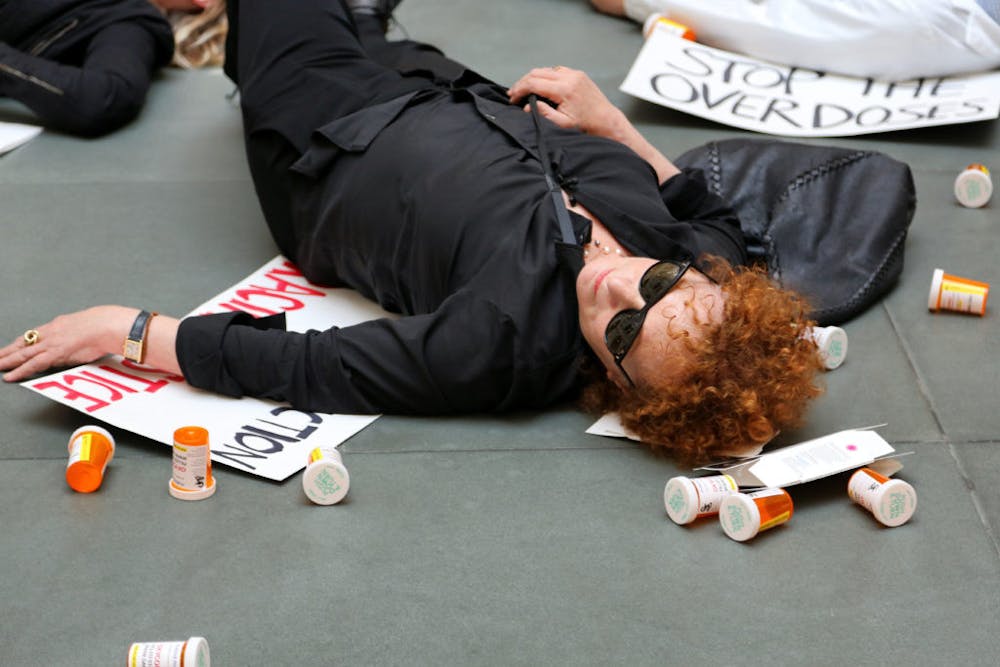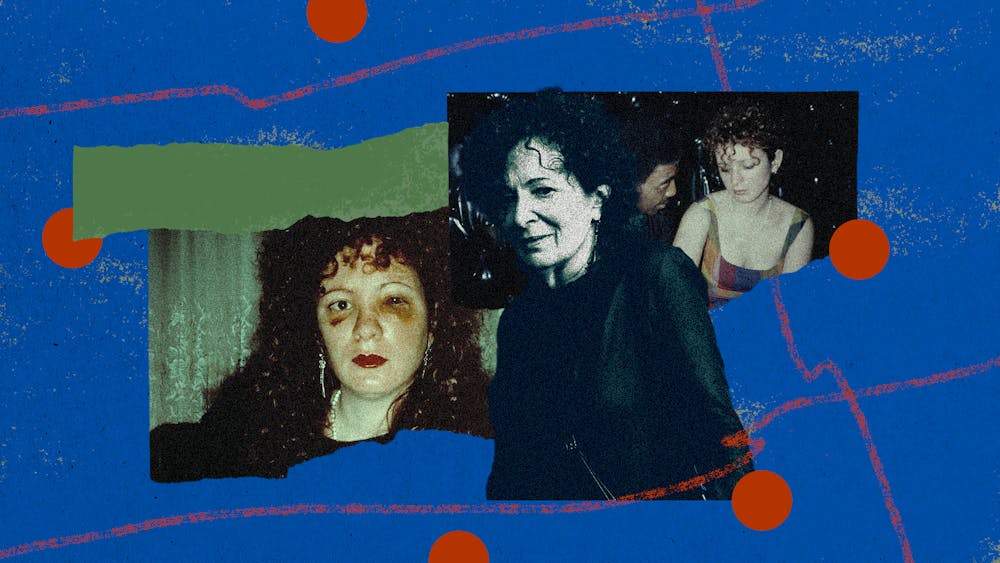That painful and mirthful moment when you look at someone you believe you know intimately, and their face seems inexplicably unfamiliar. You feel like you’ve never really looked at them long enough to notice your eyes' perception, to account for all their subtle nuances. You see them as though they are a stranger, even if they are the dearest thing in the world to you. You feel like only now do you actually understand what they look like. This is what Nan Goldin captures in each of her photographs, she exposes the subtle nuances, the raw human experience. She forces you to stare at things long enough to really see what they look like.
American photographer Nan Goldin has elevated herself to the world of high art by documenting the joys and sorrows of her human life permeated by intimacy and wild parties. In the 1980s Goldin got her start presenting electric slideshows of photographs in clubs and underground theaters. As she pursues her first solo exhibition as a filmmaker, she returns to those roots. This Will Not End Well, currently at the Stedelijk Museum of Modern and Contemporary Art in Amsterdam, features six rooms of Goldin’s slideshows composed of photographs, music, voices, and archive material. The exhibition takes about 2.5 hours to fully explore, but physically getting to it won’t be difficult for any European traveler, as the exhibition will be touring Europe’s most avant–garde and well–regarded museums over the next two years.
The Exhibition begins with Goldin’s 1981–2022 work The Ballad of Sexual Dependency. Arguably her most famed work, the thousand–plus photographs document Goldin's friends from the 70s to the present day. Her camera captures the tumultuous relationship of sex and drugs and the wonder of friendship and intimate love. These friends with whom she shared such a bond stemmed from her growing up on her own in foster homes after leaving her family at 13. Her lens showed these friends candidly injecting drugs and engaging in sexual activities.
In 2017, she received treatment for her addiction to OxyContin. Throughout her career, she has spearheaded several efforts to end the opioid epidemic in the United States. A respected leader in the art world, she formed the advocacy group P.A.I.N. (Prescription Addiction Intervention Now) staging protests in museum galleries bearing the Sackler name, the philanthropic family who made their fortune from the sale of OxyContin. Many of the dramatic protests, art forms in themselves, proved successful in getting the Sackler name removed from public art spaces.

Nan Goldin staging a ‘die-in’ at the Harvard Art Museum. Photo: TW Collins.
The rest of This Will Not End Well includes Fire Leap (2010–2022) about the world of children, and The Other Side (1992–2021), which is a historical portrait produced to celebrate the lives of her transgender friends. As well as Sister, Saints, and Sibyls (2004–2022) which serves as a testament to the trauma of families and suicide. Goldin's sister took her life in 1964, which greatly affected the themes of her art. Finally, the exhibition shows Sirens (2019–2020) as well as Memory Lost (2019–2021) juxtaposing the euphoric feeling of drug ecstasy with the harrowing world of drug withdrawal. Sirens is also currently on display, at the Gagosian Gallery in Switzerland. In the work, video footage is accompanied by a score from Mica Levi echoing the call of the Sirens from Greek Myths. The sirens luring sailors to their untimely deaths symbolize and suggest the experience of drug use.
Confronting just one of Goldin’s photographs evokes a guttural emotional reaction. The slideshows Goldin curates, the space her exhibition takes up, and the haunting audio accompanying her work create a terrifying yet sanguine world of Goldin. The exhibition truly exposes Nan Goldin's world, the life she’s captured through her camera. She says of the process “I found a way to make films out of still images. Making slideshows gives me the luxury of constantly re–editing to reflect my changing view of the world.” The poignant experience one feels while viewing This Will Not End Well is a testament to the underlying themes resonant in all viewers' lives. Goldin is not afraid to expose the unseen in her own life, leaving you forced to face the discomfort on your own.

